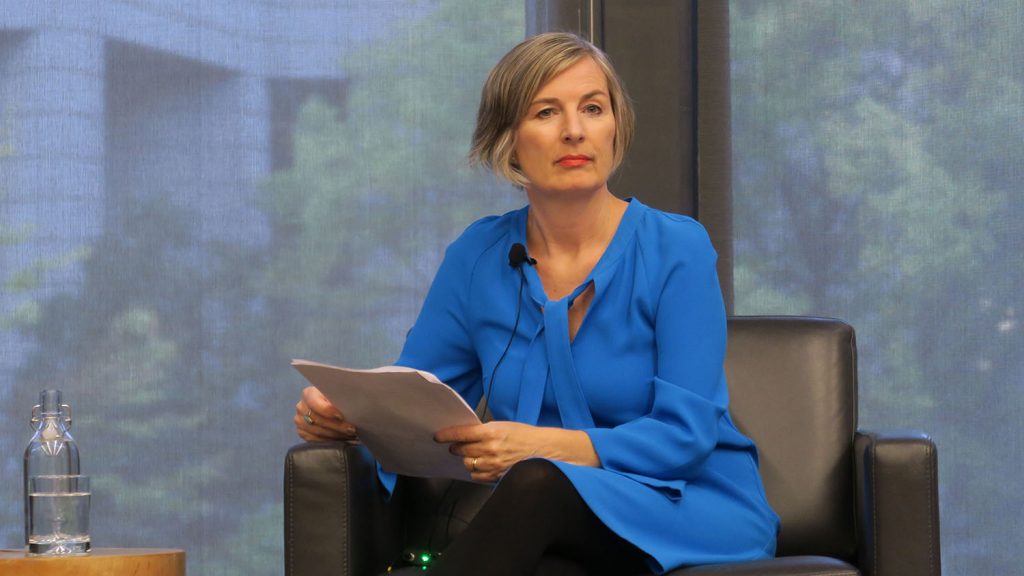The gender investing gap is a pressing issue in discussions on gender and the economy. Women are known to save and invest less than men, which leads to greater financial insecurity, particularly in retirement age. There are several contributing factors to the gender investing gap, including women’s relatively lower wages. Recently, innovative solutions for the gender investing gap have come to the fore, particularly through the recognition that finance and investment industries have been created by and for men.
“Women and Investing”, on October 7, featured three professors from the Rotman School of Management discussing their research on this topic. The speakers were Claire Célérier, Assistant Professor of Finance; Laura Doering, Assistant Professor of Strategic Management; and Avni Shah, Assistant Professor of Marketing. Their conversation was moderated by Jacqueline Thorpe, Toronto Bureau Chief of Bloomberg News.
The professors’ work covered a variety of topics with data gathered from around the world. Célérier’s work used a Swedish data set and discovered that offering capital-protected financial products cause risk-averse investors to invest more. This is notable for women, who have been found to be risk-averse in their investments. Shah’s research found that sending an SMS “nudge” to banking customers in Mexico caused them to increase their voluntary contributions to retirement, specifically when the “nudge” told them how contributions could help their families. However, this method did not work for young women, suggesting that the financial industry could be more targeted to diverse groups to create better financial outcomes for them. And, Doering’s research from a Latin American microfinance bank discovered that when borrowers are originally paired with women loan managers, they are less compliant with subsequent managers, regardless of their gender. That is, when customers consider a job as feminine, they afford it less authority.
The work of Célérier and Shah tells us that financial products and services need to be designed to be more inclusive of different demographic groups’ contexts. Meanwhile, Doering’s work shows how gender biases permeate the finance industry, suggesting senior leaders need to be aware of it and consistently endorse women’s authority, especially for jobs that people view as feminized.







